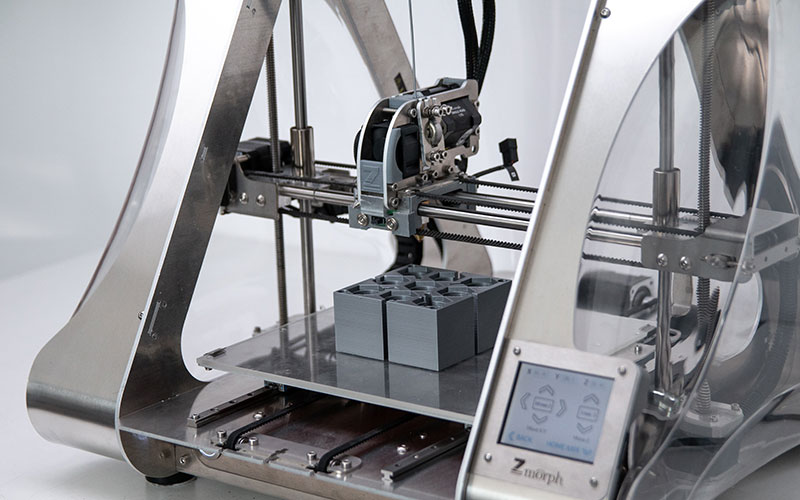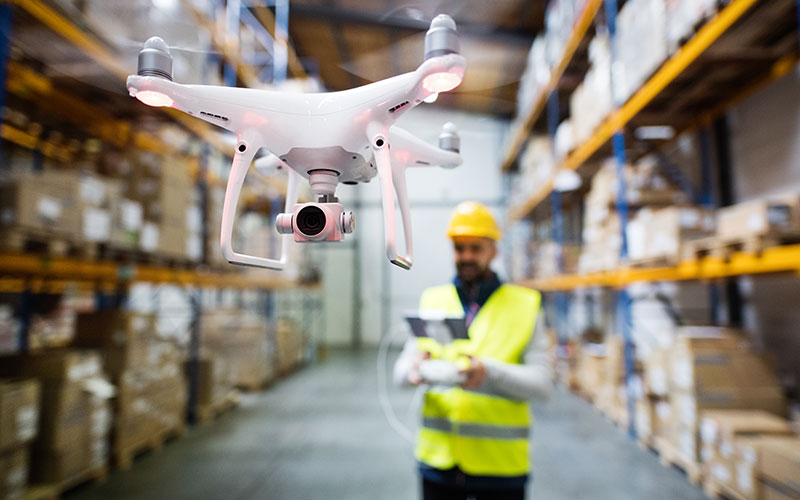5 Disruptive Technologies That Should Be Applied to Circular Economy

New technologies are an essential part of developing more sustainable businesses and fostering innovation.
At Circklo, we believe that there are 5 key disruptive technologies that will be instrumental for the creation of a more sustainable world.
1) Blockchain
Blockchain will have a significant impact in terms of increasing the global traceability of materials, processes, and products. Manufacturers can use the technology to record each step in the manufacturing journey, thus enabling consumers to trace every step of the product’s journey.
The Dutch company Waste2Wear produces eco-fabrics from recycled ocean waste. They record the manufacturing process in a blockchain that allows customers to verify the eco-credentials of the garment they are purchasing.

2) The IoT – Internet of Things
The Internet of Things refers to the computerisation and connectedness of everyday items. The data gathered from such items can provide the key to streamlining any and all processes and reducing inefficiencies, resulting in more sustainable business and environmental outcomes.
Vesta Smart Packaging is just one of the many companies making use of this new technology. Vesta provides the customer with a smart container which monitors product use. When the product runs out, the company sends automated eco refill packs to the consumer.
Not only does this reduce the need for single-use plastic, but it also provides the brand with a whole host of valuable customer metrics. From the customer perspective, the process is very convenient, resulting in a better customer experience.
Another innovative company making best use of IoT is Averda, an international integrated waste management services provider.
The company commissioned the first Smart Recycling Centre in GCC (The Cooperation Council for the Arab States of the Gulf) and the project comprised of equipping the recycling centre with solar panels to ensure its energy efficiency and minimal environmental impact whilst the recycling bins were provided with intelligent relay sensors, feeding various accurate data back to Averda’s monitoring stations, including alerts when the bins were nearing their maximum intake capacity.

3) 3D printing
3D printing is synonymous with additive manufacturing, in contrast to subtractive manufacturing methods. Traditional manufacturing puts the onus on producers to dispose of the resulting waste.
In a truly circular economy, recycling should be the last resort, not the first option. By entirely eliminating waste or by creating closed-loop systems, manufacturers can extinguish the recycling element from the supply chain.
Not only does 3D printing result in less waste, but it also results in a better product and a better fit for the customer.
In contrast to mass manufacturing, 3D printing can also produce custom garments to fit the body shape of an individual customer. A small batch production also presents less risk for retailers.

4) Robotics
Industrial systems are already using advanced robotics to make processes more efficient, reduce waste, and streamline production. When it comes to manufacturing, robots increase accuracy and minimize waste that is a result of human error.
Moreover, robots can replicate human tasks faster and more efficiently. SkyGrow has developed a robot called GrowBot that plants trees at a rate ten times faster than humans.
In addition, robots do not require the energy that humans do in terms of factories providing heating and lighting, making the supply chain far more energy efficient.
Growbot – Towards a new generation of plant inspired growing artefacts video content
5) Drones
Drones have been utilised effectively in the agro-tech industry for several years now; when flying over large areas of land, drones can monitor air quality, pollen count, or characteristics of the atmosphere.
When it comes to power plants and wind farms, drones can monitor on-the-ground conditions to alert staff about malfunctioning equipment, minimizing loss through system failures.
One company already utilizing drone technology is BioCarbon Engineering. The company is using drones in its fight against deforestation. Its planting system makes use of an UAV (Unmanned Aerial Vehicle) to replenish natural habitats. The replanting technique is fully automated and is a cheaper and far more efficient means of reforestation.

While digital technology is changing the game when it comes to sustainability, companies must be mindful of not using technology for technology’s sake. A drive to increase efficiency and productivity is at the crux of sustainable solutions.
The foundation of efficiency gains is a holistic mindset, thus sustainability can maximise profitability. In other words, when profit meets purpose, it results in better business and more sustainable business outcomes.
Our mission at Circklo is to accelerate sustainability while embedding the principles of circular economy throughout the business world.
If you are interested in any one of these trends and want to develop your own start up to help solve an industry problem, consider applying now to our Business Configurator Academy dedicated to early stage start-ups.
We are looking to accelerate starts-ups for profit and impact in the areas of:
- Non-financial metrics calculators, and track and trace platforms
- Sustainable Food and Beverage companies
- Sustainable Fashion companies
- Recycling and reuse of resources (i.e., plastic, metals)
- Financial technology (Fintech)
Circklo wants to extend this list of trends and also incorporate your views, please follow us on Twitter or LinkedIn and let’s continue the conversation.
Interested in more?
Sign up to our weekly newsletter and make sure you don't miss another post.